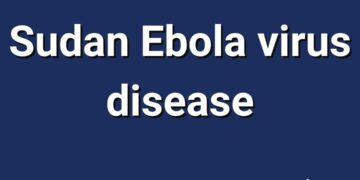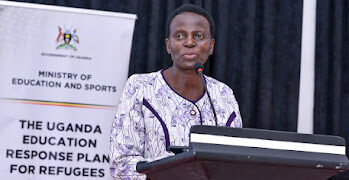Uganda’s ministry of Health (MOH) has announced that the arrival of the initial batch of 864,000 doses of the AstraZeneca vaccines will be on the 5th of March 2021 and vaccination is scheduled to begin on the 10th March 2021.
Early this month, MOH announced that Uganda had ordered 18 million doses of the COVID-19 vaccine developed by the Serum Institute of India, and up to 40% of the shipments were expected to arrive in the country by the end of March.
Speaking during a press conference in Kampala on Tuesday, Health minister Dr Ruth Aceng said Uganda targets to vaccinate 49.6% of the population (about 21,936,011 people) but in a phased manner.
Each phase is planned to cover 20% of the population which is about 4,387,202 people with the eligible population falling in the age range of 18 years and above, according to Dr Aceng.
Uganda’s vaccination program will be rolled out in three phases; Phase 1 of the vaccination exercise will focus on Health workers (Public, Private Not for Profit (PNFP) and Private for Profit (PFP)) estimated at 150,000, Security personnel (UPDF, Police, Prisons) estimated at 250,000.
According to Dr Aceng, frontline health workers and security personnel will take the jab first before any other category of beneficiaries. This, Dr Aceng says, is because they are at the frontline in the response to the COVID19 pandemic and are vulnerable to infection as has been shown by the statistics of infection (1,892) and death among health workers (19).
In Phases 2 and 3 of the COVID-19 vaccination program, the Ministry will roll out the vaccination program to age groups between 18 and 50 years in a staggered manner until 49.6% of the Ugandan population is vaccinated. This will be guided by the local epidemiology of the disease.
The second group will be the teachers (Public and Private) among other essential social service providers estimated to be 550,000 and Persons from the age 50 years and above, estimated at 3,348500. Thereafter, persons with underlying health conditions aged below 50 years, estimated at 500,000 will be vaccinated against coronavirus.
The third category will be all persons above 50 years of age which will be followed by 18 to 50-year olds who have the following underlying health conditions including hypertension, Diabetes, cancer, organ diseases such as Liver, Kidney or heart disease.
Dr Aceng however noted that all persons eligible for vaccination will be required to provide a National Identification Card in the case of Ugandan citizens or a passport in the case of non-Ugandans.
She said the COVID-19 vaccines government procured are new and additional information keeps emerging to guide the planning for vaccination which includes the criteria for targeting population groups with under children under 18 excluded from the program.
“The vaccines available up to now are not yet authorized for use in persons younger than 18 years of age in whom research is still ongoing. If vaccines become available for below the age of 18, the Ministry will update its plan accordingly and inform the public” she said.
The COVID-19 vaccine is given intramuscularly on the left upper arm – 0.5mls each and Dr Aceng says a team of well-trained health workers will be based at the designated service points to provide services.
She stated that Government Health center IIIs, IVs, District Hospitals, Regional Referral, National Referral Hospitals and specialized Institutions have been designated as vaccination service points in each district and City. Eligible persons will access their vaccines from any of these points.
MOH says that each category will be alerted on the days on which to report for vaccination -Dr Aceng said. who will be required to access vaccines from the nearest Public Health facility starting from HC III up to a National Referral Hospital.
Vaccines, MOH says, will be given to eligible persons 8 weeks apart (56 days). However, the ministry says this period can be extended up to 12 weeks as recommended by WHO Strategic Advisory Group of Experts on Immunizations.
The Ministry of Health will also issue a statutory instrument as is required by the Public Health Act and the immunization Act 2016 for emerging and re-emerging epidemics to guide the vaccination process. Vaccination will be voluntary upon signing a consent form and will be free of charge.
Uganda has so far reported 40,367 COVID-19 cases and 334 deaths – a much lower toll than in most countries due to what experts attribute to years of experience battling other viral outbreaks such as HIV AIDS and Ebola.































